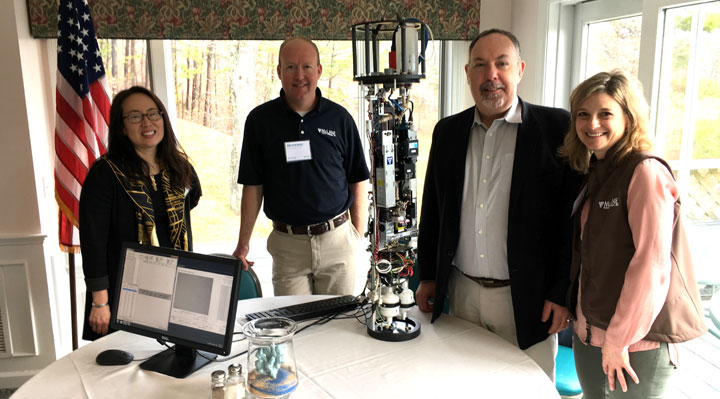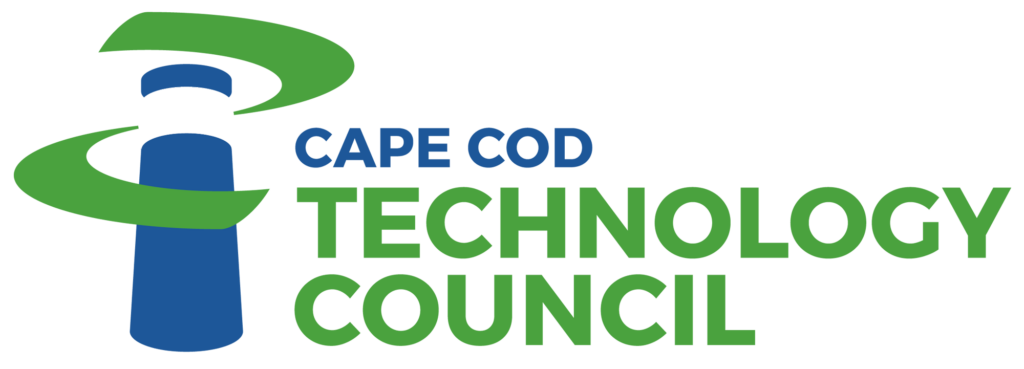
Dr. Yuki Honjo, Chief Operating Officer of McLane Research Laboratories in Falmouth, spoke at our April First Friday breakfast on the importance of team work and collaboration between industry and academia in furthering advances in Ocean Sciences.
She began her presentation with images of medieval maps, with the illuminated text hic sunt dracones in the ocean – “here be dragons.” With all our technology and instantly accessible information, we have the wonderful illusion that we know everything. But it’s a false sense of reality. When it comes to oceans, we’ve reached the end of knowledge.
Why study the ocean? It controls all life on earth, Yuki said. The ocean is 85% of biosphere by volume with 2 million known animal species and maybe 18 million additional species. If you line up all the microbes, it would more than span our galaxy.
There are many obstacles to exploring the ocean: It’s under pressure, dark, expensive, dangerous…and under water. The “dragons” are still every bit as real as they were. Studying the oceans is not a job for one person. It is a global effort, and part of that effort is based on Cape Cod.
There are still blank and unexplored areas on maps of our oceans, despite world-wide efforts like GEOTRACES . GEOTRACES is “an international programme which aims to improve the understanding of biogeochemical cycles and large-scale distribution of trace elements and their isotopes in the marine environment. Scientists from approximately 35 nations have been involved in the programme, which is designed to study all major ocean basins over the next decade.”
These efforts began with boats, which gave rise to machines – specifically Argo Floats. Thousands of Argo Floats are deployed around the world, helping scientists understand the ocean in real time. Data is collected through moorings, nodes, satellites, and ROVs. Nodes allow for power and communication in a fixed location.
We’re seeing a renaissance of communication, Yuki said.
One of the things we’re facing today is harmful algal blooms. The Imaging FlowCytobot (IFCB) is an in situ submersible imaging flow cytometer used to help try figure out what’s causing the algal blooms. It takes a sample every 20 minutes, sending information to shore in real time. You can see samples in near real time on the IFCB dashboard. All the data is shared and fully accessible.
The team at McLane is made up of mechanical engineers and software engineers but also technical sales, marketing, technical documentation, assembly & productions, and managers. If you are interested in science but don’t want to be a scientist, this is an option. In a question and answer period following the talk, Yuki was asked if McLane was able to fill technical positions on Cape Cod. “We have a great staff but it takes a wide search and patience in finding the right person,” she said. “We’re looking for a very specific skill set.” As of this writing there were no job openings available.
Yuki started her career in equity analysis, working at Tokyo-based financial institutions. A proud native of Falmouth (she was born at Falmouth Hospital and attended Falmouth schools), she spent the better half of her life abroad. Yuki happily returned to the Cape in 2009.
Yuki holds an honors degree from Harvard University, a doctorate from the University of Oxford, and has also studied at the University of Tokyo.
